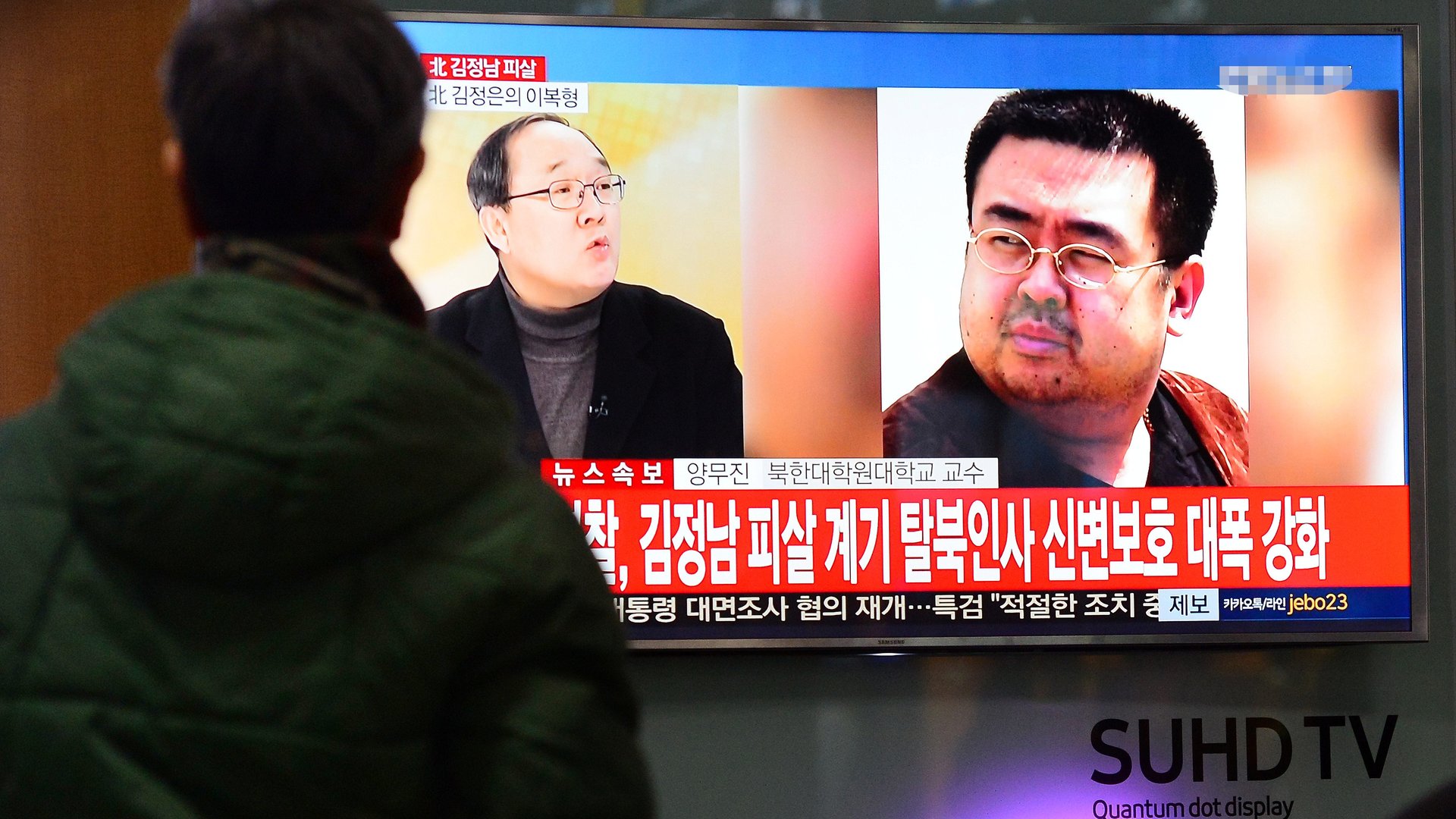The costs of Kim Jong-nam’s death are mounting for North Korea
North Korea doesn’t have many friends, and it’s alienating a few important ones this week. China announced the suspension of coal imports from North Korea starting Feb. 19, crimping the isolated state’s most valuable trade route.


North Korea doesn’t have many friends, and it’s alienating a few important ones this week. China announced the suspension of coal imports from North Korea starting Feb. 19, crimping the isolated state’s most valuable trade route.
China says it’s merely complying with United Nations sanctions adopted in November. If that’s true, the timing is remarkable. The suspension, imposed through the end of 2017, comes shortly after a North Korean missile launch and the audacious alleged assassination of Kim Jong-nam, a half-brother of North Korea’s ruler, in Kuala Lumpur. The Chinese state-run tabloid the Global Times duly ran an editorial decrying “speculation” that the coal stoppage was a way for Beijing to express irritation at Pyongyang’s belligerence.
North Korea’s exports to China accounted for over 85% of its total exports in 2015, according to the UN. Of this, more than half, or $1.1 billion, was comprised of anthracite, a variety of coal. These exports have boomed in recent years, adding billions to North Korea’s coffers. The Chinese ban will hurt.
The Kim Jong-nam episode has also soured Pyongyang’s relationship with Malaysia, which recalled its envoy from North Korea today and gave the North Korean ambassador in Malaysia a scolding. The North Koreans accused the Malaysians of conspiring with shadowy outside forces—a veiled reference to South Korea—in their investigation of Kim’s death.
Further revelations in the case in Kuala Lumpur—including autopsy results that may be published as early as Wednesday, according to Malaysia’s health minister—may make life uncomfortable for North Korea. China’s coal ban, however, will prove the most painful for Kim Jong-un’s regime.